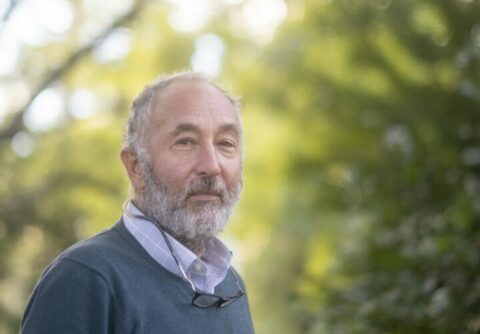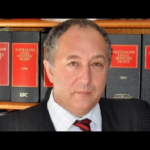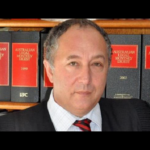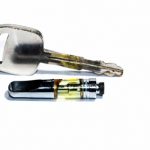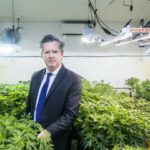NSW Considers Medical Cannabis Driving Defence: Interview With Former Magistrate David Heilpern

The Turnbull government legalised medicinal cannabis use in 2016, along with the lawful cultivation, manufacture and distribution of it. But, six years on, and drivers who use the medicine continue to be penalised for having traces of it in their system.
Thanks to NSW Greens MLC Cate Faehrmann this unjust state of affairs could all soon be coming to an end, as she’s drafted legislation that makes it legal for people who use cannabis medicine on prescription to drive, just like any other medication.
Tabled last November, Faehrmann’s Road Transport Amendment (Medicinal Cannabis – Exemptions from Offences) Bill 2021 tweaks the offence of driving with the presence of certain drugs in one’s system so that it no longer applies to patients whose doctors have prescribed cannabis medicine.
This law reform may seem uncontroversial, however nothing could be further from the truth.
The NSW Police Force and the NSW Centre for Road Safety vehemently oppose it. And other state parliaments have knocked back similar proposals. But such is the war on drugs.
Testing for traces, not impairment
Contained in section 111 of the Road Transport Act 2013 (NSW), the offence of driving with the presence of certain drugs in a person’s system has always been a contentious law, since it was first enacted in 2006.
Random breath testing for alcohol uses devices that can ascertain the level of alcohol in a driver’s system and whether they’re too drunk to drive. But roadside drug testing involves checking for the presence of certain drugs – however tiny – giving no indication of whether a driver’s intoxicated.
The limited list of substances tested for includes THC, the psychoactive component of cannabis. So, a person who’s using cannabis medicine for an ailment – and not to get high – either can’t drive or risk being pulled over, tested, and if positive, then having their licence suspended and being fined.
The view from the bench
A key advocate for a NSW medicinal cannabis driving defence is Drive Change campaign lead David Heilpern.
Indeed, the number of unfair drug driving cases that came before the Lismore Local Court whilst the former NSW Magistrate presided over it led him to give up the gavel a few years back.
Heilpern’s decision to acquit Joseph Carrall on a charge of cannabis driving on 1 February 2016 caused headlines. The evidence before the court showed that the Northern Rivers man had tested positive for THC after having smoked a joint nine days prior to testing.
So, after spending a number of years with a large portion of his role being to preside over cases where people were obviously testing positive for cannabis driving whilst they weren’t impaired, Heilpern is more than pleased with the progress Faehrmann is making in parliament.
Sydney Criminal Lawyers spoke to former NSW Magistrate David Heilpern about the progress of the inquiry, the effects that being charged with drug driving is having on these legitimate patients, and why this unjust law continues to stand not due to reason but because of a prejudice towards a plant.
Firstly, Mr Heilpern, Cate Faehrmann’s bill to end the criminalisation of those driving with traces of prescribed cannabis medicine in their system was scrutinised by the NSW Legislative Council Standing Committee on Law and Justice on 16 June.
In your understanding, how is the parliamentary process going? And how are you feeling about this issue finally receiving attention?
The fact that it’s finally receiving attention is a blessing. It’s really helpful that parliament is now considering this.
I certainly feel very angsty at the approach of Road Safety and the police in terms of their blanket opposition to the change, even though it is so minimal.
They keep throwing up cannabis being involved in a great number of fatalities and injuries in NSW. That’s the word they like to use, “involved”.
But what they fail to mention is there is not a single coronial finding on the use of medicinal cannabis causing death. And certainly, nobody by prescription.
The reasoning based on involvement covers miniscule detectable amounts in findings of people who’ve been in serious motor vehicle accidents and had blood tests taken usually after death.
These people can be pedestrians, passengers in the car, and they might not be at fault in the motor vehicle accident, but all of those people are determined to be involved.
So, it’s really the ultimate in fake news.
But, having said that, obviously the issue has had an airing, and my understanding is from the media that the Coalition government will oppose any change, so really, it’s up to the Labor Party to determine.
Labor has some strong supporters of medicinal cannabis users in their ranks. And why wouldn’t there be? There are so many now. Everyone knows someone who’s on a prescription.
So, I’m hoping that Labor will come to the party and support these very minimal and sensible changes.
So, the Perrottet government, the NSW Centre for Road Safety and the NSW Police Force are all against the change?
Certainly, from their submissions, Road Safety and the police are. I have not seen the Perrottet government publicly stating their opposition, but the media are reporting that they’re opposing it.
Tabled last year, Faehrmann’s medicinal cannabis road bill amends the section 111 offence of driving with the presence of certain substances in one’s system, so that it doesn’t apply to those with traces of prescribed cannabis medicines.
Your organisation Drive Change provided a submission to the inquiry. What are your thoughts on what Faehrmann drafted?
This is a very minimal change. We’ve certainly copped some flak from those who wanted a much broader proposal to go before parliament.
But Cate Faehrmann’s bill is well timed. It is minimalist. But it has the highest chance of getting some change through.
So, all it proposes is that if you have a prescription, are using in accordance with the prescription, and you’re not affected, as in driving under the influence and weaving all over the road, then you have a defence to a charge.
That defence is the same that exists in mainland Europe, in Ireland, in most US states and in New Zealand. It also exists in Tasmania. It’s a very sensible proposal.
All it does is put cannabis in the same position as every other prescription drug, be it Valium, antianxiety medication or barbiturates.
For all of those medicines, it’s legal to have a trace in your system, as long as you’re not driving under the influence. And that is exactly how it should be provided you’ve got a prescription.
You spoke on this issue at last month’s Australian Medicinal Cannabis Symposium, and you raised the situation in Tasmania to refute suggestions that reforming the laws around driving and prescription cannabis could jeopardise road safety.
So, what’s been happening down in Tasmania in this regard?
They’ve had this defence for many years in Tasmania. And, of course, medicinal cannabis is growing in use with hundreds of thousands of prescriptions now, and there has been no increase in the road toll in Tasmania that anybody’s attributing to this very minimalist defence.
What that means is that in Tasmania, if you’ve got a prescription, you are not under the influence, and you are using in accordance with that prescription, then you’ve got a defence to this charge.
If this was going to lead to the sort of calamity and disaster that some have suggested it would lead to, then we would be seeing evidence of it in Tasmania or, indeed, in any of the other jurisdictions where they have such a defence.
Of course, we’re not seeing anything. That’s because medicinal cannabis users don’t use to get stoned. They don’t use to get out of it. They don’ t use and minimise their ability to drive.
They use because they’re suffering from a medical condition and their doctor has assessed it’s appropriate, and they still want to be able to get on with their lives, drive to work and visit their families.
The ABC reports that during last Thursday’s inquiry a key issue was how to determine a person is impaired by medicinal cannabis if the current testing devices aren’t to be relied upon.
Is this issue of particular concern in your understanding?
No one has ever raised that as an issue of concern for other prescription drugs.
In other words, for other prescription drugs they have standards and tests to be applied that can determine whether or not you are driving under the influence and that’s determined by expert evidence after a blood test, after an assessment of your driving and observations of you.
All we’re asking is for cannabis to be treated in exactly the same way as other prescription drugs are treated.
There is no collective outcry about people not being able to drive a day after they’ve had a Valium or a day after they’ve had their antianxiety medication or a day after they’ve used a barbiturate.
Yet, THC remains in the system. As you know, I found a case where a positive test resulted nine days after. I heard expert evidence about that.
So, in essence, what I’m saying is that it’s always of concern if people are putting substances in their system and driving, and we need to know the community is safe.
All that should happen is cannabis be treated in the same way that all other prescription medicines are.
Indeed, in NSW, there’s an exception for morphine. If you use prescribed morphine, there is a defence.
A large part of the reason you retired from the bench as a NSW magistrate was due to the havoc these laws were causing at Lismore Local Court.
You’re not the only person raising this issue as being of particular importance. Can you speak on why it’s so significant?
It’s significant because it is just so blatantly unfair. It’s an historical overreach from whence cannabis was illegal and not available by prescription.
If this was a new drug that suddenly came on the market, there would be no problem with this. It is just a hangover from the illegal days.
The consequences are particularly on rural people, and particularly on people of the Northern Rivers region, where the policing of this is targeted. It’s extraordinary.
There are now in excess of 200,000 tests per year in NSW, with a strike rate of 8 percent. That’s about 16,000 people and most of those would be THC.
So, what we’re dealing with is a significant number of people losing their licences every year with all the implications that has for productivity, employment and depression.
Then what they do is go back to the less effective medications that they can legally drive on, just because they’re prescribed in a category of drugs that wasn’t once illegal.
It just completely beggars belief. It causes harm in our community. And it needs to change.
So, there is a prejudice against cannabis medicine at play here?
This has nothing to do with road safety. This has nothing to do with increasing access to medicine. What this has to do with is the war on drugs.
This is part of the armoury of the war on drugs. And that is why politicians are too scared to change it, because that’s the rhetoric that surrounds it.
This has nothing to do with road safety whatsoever.
You could introduce Cate Faehrmann’s bill tomorrow, as law, even if you wanted to do it as a two-year trial period, and just like Tasmania and around the world, you would find no increase in deaths or road trauma as a result of such a change.
The experts all know this. In fact, if you read all the submissions, which I’ve done, no one is seriously suggesting there would be an increase in the road toll if this reform was introduced.
We need this change, and we need this change now.
And lastly, Mr Heilpern, the issue with these laws started to become a key concern back in 2015, when the Baird government announced it was tripling the number of roadside drug tests. The Northern Rivers region, as you’ve mentioned, has always been a key focus in terms of the regime.
How are you feeling about the progress you’ve seen on the issue since Drive Change was launched? And is the proposed medicinal cannabis exemption enough?
As to the first, I’m feeling exasperated. I thought that this would be a very short campaign after I retired. I thought that the common sense of what was being said by Drive Change as a movement, was so minimalist and sensible it would happen very quickly.
How wrong I was.
So, I’m feeling exasperated that there’s been no change. There has been bills in Victoria. There have been motions in South Australia. Now, there’s an upper house inquiry in NSW, and there’s a standing committee in Western Australia.
Yet, we’ve seen no change in any jurisdiction to make us the same as Tasmania and the rest of the world. So, I’m exasperated by it.
Is the proposed medical exemption to the laws enough? For now, it is. This is a minimalist step. Let’s do it. Let’s do it for 12 months or two years, take a deep breath and see if it impacts adversely.
Now, I’m absolutely confident that it won’t. And that will then lead to further changes.
But it’s enough for now to set us on a sensible road. Afterall, the ACT has legalised cannabis, medicinal or otherwise, and they’re now moving towards decriminalisation of the possession of other drugs.
So, there’s movement in this sphere. We can’t keep being the outlier of conservatism in this area that we are.
Going to court for a traffic offence?
If you are going to court for a traffic offence, call or email Sydney Criminal Lawyers anytime to arrange a free first consultation with an experienced, specialist traffic lawyer who will accurately advise you of your options, the best way forward, and fight for the optimal outcome in your specific situation.
Receive all of our articles weekly
Related Articles
RELATED LEGISLATION
- Section 10 Drug Misuse and Trafficking Act 1985 | Drug Possession
- Section 111 Road Transport Act 2013 | Drug Driving - Driving with Presence of Certain Drugs (Other than Alcohol) in Oral Fluid, Blood or Urine
- Section 112 Road Transport Act 2013 | Use or Attempted Use of a Vehicle Under the Influence of Alcohol or Any Other Drug
